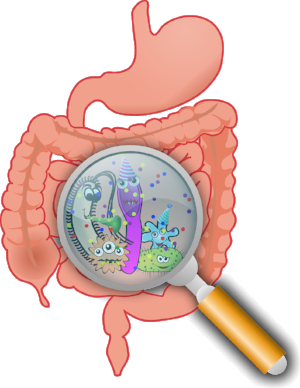4 THINGS YOU CAN DO TO HEAL YOUR GUT AND EASE YOUR PELVIC PAIN
Did you know that your gut communicates with your brain like a two-way highway? Your gut health can alter your mood, pain response, concentration, and ability to cope with stressful situations.
If you’re like others navigating their way out of pelvic pain, you’ve probably taken a lot of antibiotics and other unnecessary medications which can disrupt the bacteria living in your gut.
You have “good” bugs and “bad” bugs that live in your gut and are necessary for health. When this happy balance gets thrown off, the body goes into alert mode.
Altered gut microbiota balance can lead to things like:
Anxiety
Depression
Allergies
Persistent pain
Weak immune system
Infections
Bowel issues
Fatigue
Sleep disturbances
Nerve pain
When the population of potentially altruistic or “bad” bugs grows larger than the “good” bugs, they plan a party. They use special chemical messengers like zonulin to send the invitation to all their friends. Zonulin is an inflammatory protein that increases the gap between the cells that line your gut. Normally, this gap is a very tight junction, not allowing much to pass through, unless you have a special invite. When bacteria send this “private invitation”, the blood-brain barrier is vulnerable to other inflammatory chemicals to join the party.
These inflammatory chemicals communicate with your nervous system in multiple ways such as the vagus nerve (regulates the “rest and digest” response of the autonomic nervous system) as well as altering serotonin, a happy chemical messenger that is responsible for your mood and well-being. Research states that 95% of serotonin is produced in your gut. Go figure!
So what causes this imbalance in the first place?
It’s the overall stress load on the body over a period of time. For example stress, individual genetic differences, and perceived threat which includes fear, hopelessness and pain. Pain itself is both a sensory and emotional response to both a perceived and/or actual threat.
Other things like diet, history of antibiotic use, constipation, and infections can also disrupt the gut microbiota.
It’s not uncommon to see a lack of gut bacteria diversity in individuals experiencing pelvic pain, especially low are the anti-inflammatory bacteria that help keep the peace.
Here are 4 things you can do to help repair and restore your gut back to health:
Get on an anti-inflammatory diet (not a special diet fad, keep it simple). This means limiting foods such gluten, sugar, dairy, alcohol and caffeine. Eat a variety of colorful, whole foods per meal and double-check the ingredients (sugars can be sneaky). It’s worth working with a functional medicine practitioner to get an accurate picture of your gut health so you know which diet is right for you.
Poop regularly. Constipation and other bowel disturbances can disrupt the flora in your gut. Invest in a poop stoop or squatty potty and drink plenty of water. General rule of thumb is to drink half your body weight in ounces.
Chew your food slowly. Your stomach doesn’t have teeth. Chewing helps release digestive enzymes to break down and emulsify your food making it easier on digestion. So for example, if you’re eating something hard like an almond, you should chew it 20-40 times. Time to strengthen those muscles of mastication!
Meditate. Psychological stress stimulates the “fight or flight” response by releasing stress hormones into the bloodstream. Great in short doses, not so good for your health with prolonged stress. Over time these stress hormones can alter gut microbiota. Meditation helps regulate the stress response by stimulating the “rest and digest” nervous system which reduces inflammation and helps maintain a healthy gut-barrier function. ¹
Househam AM, Peterson CT, Mills PJ, Chopra D.The Effects of Stress and Meditation on the Immune System, Human Microbiota, and Epigenetics. Adv Mind Body Med. 2017 Fall;31(4):10-25.
This information is not intended to substitute for professional medical advice, diagnosis, or treatment. Always seek the advice of a healthcare professional with any questions you may have regarding treatment, medications/supplements, or any medical diagnoses. This information is intended for educational purposes only and is in no way to substitute the advice of a licensed healthcare professional.

